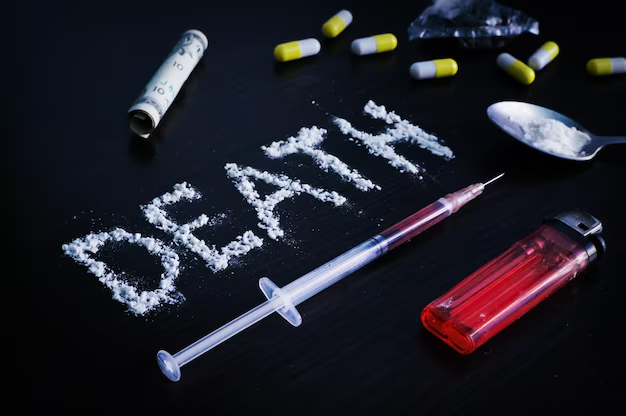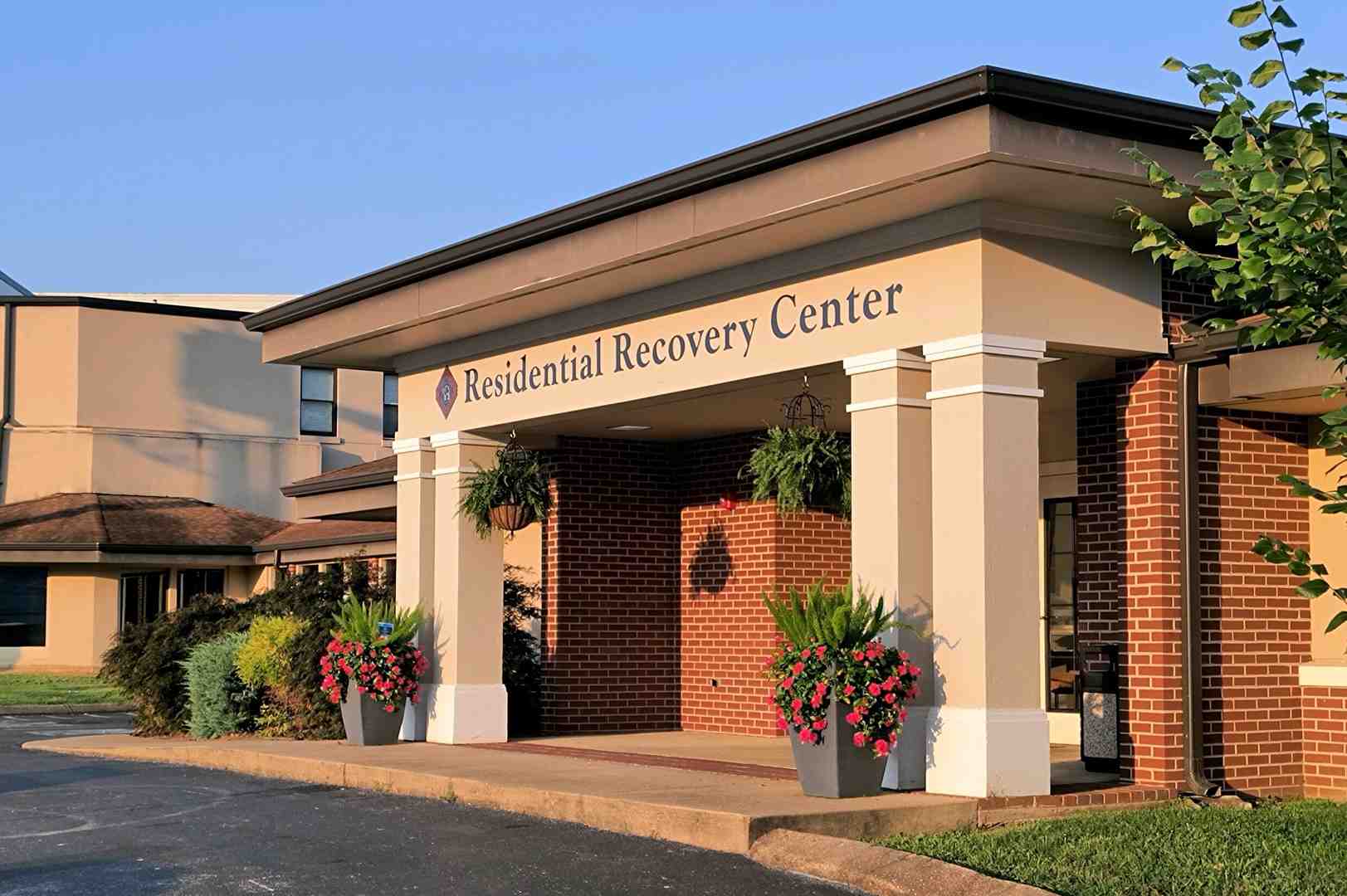
Drug addiction is a complex condition that affects millions of individuals worldwide. It doesn’t just affect the person struggling with addiction but also their families, friends, and communities. Understanding the underlying causes of drug addiction and drug use is crucial for recognizing its risks and helping individuals make informed choices about their health and well-being.
Drug addiction isn’t just a matter of personal weakness or bad decisions—it is often the result of multiple interconnected factors. The causes of drug addiction are influenced by a combination of genetic, environmental, psychological, and social factors, which together contribute to a person’s vulnerability to addiction.
If you or someone you love is dealing with drug addiction, it’s important to know that help is available. Call Addiction Helpline America at (844) 561-0606 for support.
The Role of Genetics in Drug Addiction
Genetic Factors and Addiction Risk
Genetics play a major role in whether or not someone becomes addicted to drugs. Studies show that a person’s genetic makeup can make them more susceptible to addiction. While no single gene causes addiction, several genes can influence how an individual’s brain responds to drugs, making some more likely to develop addiction than others.
- Genetic predisposition can make a person more sensitive to the rewarding effects of drugs like alcohol, nicotine, or opioids.
- Certain brain chemistry traits, such as how dopamine is processed, can lead to a higher likelihood of addiction.
- Family history of addiction increases the risk, as individuals with parents or siblings who struggle with substance abuse are more likely to develop similar issues.
Research has found that about 40-60% of the risk for addiction is influenced by genetic factors. However, while genetics can increase vulnerability, environmental factors often trigger the onset of addiction.
Find Hope and Healing: Call Us Now!
Take the first step towards a brighter future! If you or a loved one is seeking support for substance abuse, we are here to help. Call us today and let our dedicated team guide you to the right treatment options. Your path to recovery starts now!
- Connect with an expert addiction specialist 24/7/365
- Learn about treatment costs
- Arrange fast access to a treatment program
Request a Call
OR
Make a Call
Environmental Factors Contributing to Drug Addiction
How Environment Shapes Addiction
While genetics are crucial, a person’s environment is just as important in the development of drug addiction. This includes family dynamics, social influences, and the community in which a person grows up.
- Childhood trauma: Experiencing trauma, such as abuse, neglect, or witnessing violence, can increase the likelihood of turning to drugs as a coping mechanism. Individuals who experience childhood abuse are particularly vulnerable to addiction later in life.
- Peer pressure: Especially during adolescence, peer influence can be a strong factor in whether someone tries drugs. The desire to fit in or be accepted can lead individuals to experiment with substances, even if they wouldn’t have otherwise.
- Socioeconomic factors: Growing up in a community with high stress, poverty, and limited access to healthcare can make it harder for individuals to resist drugs. People may turn to drugs to escape their circumstances, ease emotional pain, or cope with the lack of opportunities.
When drugs are easily accessible, individuals may be more likely to experiment with them, increasing their risk of developing an addiction.
Mental Health Disorders and Their Link to Addiction
Co-occurring Disorders: Addiction and Mental Health
Many people who struggle with mental health disorders are at a greater risk of becoming addicted to drugs. This relationship is known as comorbidity, meaning that addiction and mental health disorders occur together.
- Depression and addiction: People who suffer from chronic depression may turn to substances like alcohol, marijuana, or prescription medications to numb their emotional pain, leading to dependence.
- Anxiety and substance abuse: Individuals with anxiety disorders, including panic attacks and social anxiety, may use drugs or alcohol to ease their discomfort. This can lead to developing a tolerance and increasing dependency.
- PTSD and addiction: Those with Post-Traumatic Stress Disorder often turn to drugs or alcohol to cope with the trauma they have experienced. Substance use becomes a way to numb flashbacks, nightmares, and intrusive thoughts.
It is important to recognize that addressing both mental health and addiction is essential in the recovery process. Treating the underlying mental health disorder can significantly improve a person’s chances of overcoming addiction.
The Influence of Peer Pressure and Social Circle
Peer Influence and the Path to Addiction
Peer pressure, especially during adolescence, is a significant factor in the development of addiction. During this period, teenagers are more likely to experiment with drugs as they try to fit in with their friends or social groups.
- Teenage experimentation: Adolescents often see drug use as a way to feel accepted, rebellious, or part of a group. This is especially true if their social circle glamorizes drug use.
- Adult social circles: For adults, the pressures to engage in drug use may come from workplace stress or friend groups that socialize around alcohol or other substances. Individuals in these environments may feel that using drugs is a way to bond with peers or relieve stress.
- Lack of support: People without strong, supportive relationships may be more vulnerable to the influence of peers who use drugs.
A healthy social network that discourages drug use and encourages positive behaviors can be vital in reducing the risk of addiction.
Find Hope and Healing: Call Us Now!
Take the first step towards a brighter future! If you or a loved one is seeking support for substance abuse, we are here to help. Call us today and let our dedicated team guide you to the right treatment options. Your path to recovery starts now!
- Connect with an expert addiction specialist 24/7/365
- Learn about treatment costs
- Arrange fast access to a treatment program
Request a Call
OR
Make a Call
The Impact of Stress and Trauma on Addiction
Chronic Stress and Addiction
Chronic stress—whether from work, relationships, or personal challenges—can be a major trigger for drug addiction. The body’s natural response to stress involves the release of hormones like cortisol, which can lead to a craving for substances that provide temporary relief.
- Workplace stress: Individuals who experience high levels of job-related stress may turn to drugs or alcohol to cope with feelings of burnout or frustration. Chronic stress from work can also lead to anxiety, which may drive individuals to self-medicate with substances.
- Relationship stress: Marital issues, family conflicts, or social isolation can also lead to substance abuse. People in emotionally difficult relationships may turn to drugs to numb their emotional pain.
- Traumatic events: People who experience trauma, such as the death of a loved one, abuse, or violence, may turn to drugs as a way to cope with the aftermath.
Individuals who can develop healthy ways of managing stress—such as through therapy, support systems, or exercise—are less likely to turn to drugs for relief.
The Influence of Media and Pop Culture
How Media and Culture Contribute to Addiction
The media and popular culture play a huge role in shaping perceptions about drugs and addiction. The glamorization of drug use in movies, music, and advertisements can influence individuals to experiment with drugs.
- Glamorizing drug use: In movies, TV shows, and music videos, drugs are often portrayed as symbols of power, success, or freedom. This portrayal can lead individuals, especially teens, to view drug use as a normal part of life.
- Advertising and marketing: The alcohol and tobacco industries use appealing advertisements to normalize substance use, particularly among youth. The depiction of smoking and drinking as fun, carefree activities can make these substances seem less harmful than they are.
- Celebrity influence: When high-profile celebrities openly use drugs or alcohol without facing consequences, they can unintentionally send the message that substance abuse is acceptable.
The media’s portrayal of drugs can create false perceptions, making it essential for society to focus on responsible portrayals and education about the dangers of substance abuse.
How Drug Availability Affects Addiction Rates
Access to Drugs and Its Role in Addiction
The availability of drugs plays a direct role in addiction rates. When drugs are easy to access, the chances of experimentation and addiction increase.
- Prescription drug abuse: The over-prescription of opioids, painkillers, and other medications has led to a rise in addiction. Many people who start with prescribed medication end up becoming dependent on them.
- Street drugs: Illegal drugs, like heroin, cocaine, and methamphetamine, are widely available in many communities, making it easy for individuals to obtain these substances and develop addictions.
- Drug trafficking and distribution: In regions where illegal drug distribution is common, young people may be introduced to drug use earlier in life, leading to higher addiction rates.
The greater the availability of drugs, the higher the risk of addiction.
Find Hope and Healing: Call Us Now!
Take the first step towards a brighter future! If you or a loved one is seeking support for substance abuse, we are here to help. Call us today and let our dedicated team guide you to the right treatment options. Your path to recovery starts now!
- Connect with an expert addiction specialist 24/7/365
- Learn about treatment costs
- Arrange fast access to a treatment program
Request a Call
OR
Make a Call
Conclusion: Addiction is a Multifaceted Issue
Understanding the Causes of Addiction
Drug addiction is influenced by a variety of interconnected factors, including genetic predisposition, environmental influences, mental health conditions, and social pressures. No single factor causes addiction, but rather a complex interaction of these elements makes some individuals more vulnerable to substance abuse.
Understanding the causes of addiction is the first step toward combating this issue. By addressing these root causes, individuals and society can work together to provide support, reduce addiction rates, and offer hope for those in recovery.
If you or someone you love is struggling with drug addiction, know that help is available. Reach out to Addiction Helpline America at (844) 561-0606 for assistance in finding the right treatment options.
What are the primary causes of drug addiction?
How does genetics influence drug addiction?
Can mental health issues lead to addiction?
What role does peer pressure play in drug addiction?
How can I prevent drug addiction?
Our helpline is 100%
free & confidential
If you or someone you care about is struggling with drug or alcohol addiction, we can help you explore your recovery options. Don’t face this challenge alone—seek support from us.
Programs
Resources
Will my insurance
cover addiction
treatment?
We're ready to help
Find the best
drug or alcohol treatment
center
Are you or a loved one struggling with addiction? Call today to speak to a treatment expert.








